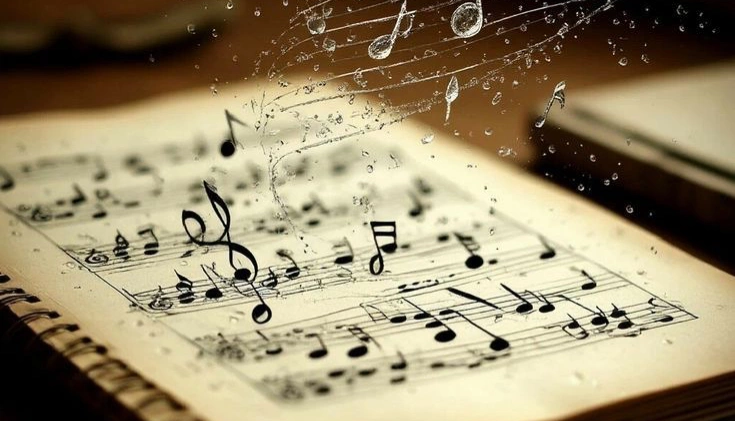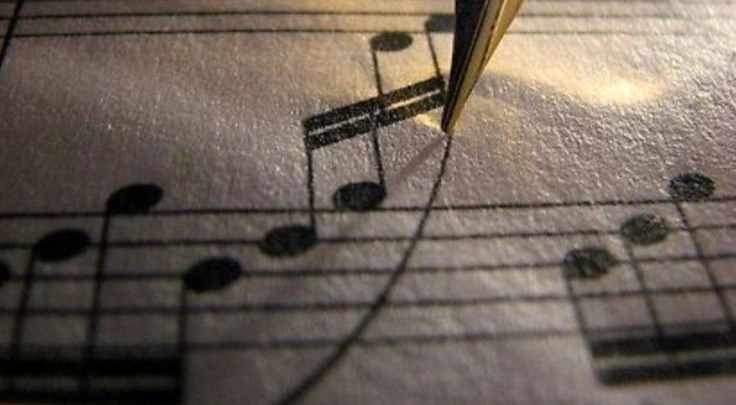Music and Self-Expression
Music is more than sound. It’s a language of emotion, thought, and inner life. It allows people to express what often can't be put into words — joy, grief, confusion, rebellion, love, or freedom. From ancient rituals to modern playlists, music has always been a core part of how humans connect to themselves and the world.
For many, music acts as a kind of emotional therapy. Through melody, rhythm, and lyrics, people process pain, celebrate life, and discover parts of themselves. Teenagers, for example, often use music to shape identity, distance themselves from authority, and find belonging through shared taste and values.
Music is also a voice — especially for those who struggle to express themselves in conventional ways. Songwriters, producers, singers, and instrumentalists all use music to tell their story. Whether it’s a quiet piano piece or a loud hip-hop track, it carries a message that words alone often cannot.
Music connects people. Even when language divides, a melody can unite. Individuals from different cultures and countries can feel the same emotion through the same song. This makes music a powerful, universal form of communication.
It’s also a tool for resistance and protest. Through it, artists confront injustice, challenge politics, and express collective struggle. Music becomes not just personal expression, but a reflection of the soul of a generation.

Ultimately, music is a mirror of the inner self. Whether performing, composing, or simply listening, people enter a space of self-discovery. In that space, true self-expression emerges — raw, honest, and profoundly human.

Music is more than just organized sound — it is a language of emotion, identity, memory, and the inner world.Across cultures and centuries, music has served as a mirror for the human experience. It expresses what often can’t be captured in speech — joy, grief, wonder, heartbreak, rebellion, healing, or freedom. From ancient chants around the fire to curated playlists on a smartphone, music is one of the most profound ways we connect — to ourselves, to others, and to something greater.
For many, music functions as a form of emotional therapy. In a song, we may find words for emotions we didn’t even realize we were holding. A melody can validate pain or awaken happiness. A rhythm can ground us in the present moment or carry us into memory. Music provides a safe space to feel. It helps people move through grief, celebrate life milestones, and process trauma. It can make solitude feel full, and togetherness even more powerful.
For teenagers and young adults, music often becomes a compass for identity. Through lyrics, genres, and artists, they find a sense of belonging and expression. Music helps them differentiate from authority, form subcultures, and connect with others who share similar emotions, values, or life experiences. A favorite band or song can become more than a preference — it becomes part of who they are.
But music’s expressive power extends to those who struggle with conventional communication, such as individuals on the autism spectrum, those with trauma, or those with speech impairments. Through instruments, rhythms, and tones, people can externalize what’s internal, often more honestly than through words. In this way, music is a voice — not always verbal, but always truthful.
Artists — whether songwriters, producers, composers, or performers — use music as a storytelling medium. A single track can carry layers of meaning: political resistance, heartbreak, nostalgia, or hope. From the intimate beauty of a solo violin to the explosive energy of a hip-hop anthem, music communicates across emotional frequencies that words alone cannot touch.
🌍 Music as a Universal Bridge
One of the most magical aspects of music is its universality. Even when language divides, a melody can unite. People from different continents, cultures, and walks of life can experience the same emotion through the same song. A lullaby in one language can soothe a child in another. A beat in one country can move dancers on the other side of the globe.
Because of this, music is often used in diplomacy, humanitarian work, and education — as a tool to build empathy, bridge differences, and share culture. It reminds us that while we may speak different languages, our emotional core is shared.
🎤 Music as Protest and Power
Throughout history, music has also been a tool for resistance. From slave spirituals to punk anthems, from protest songs in apartheid-era South Africa to modern-day hip-hop addressing racial and social injustice — music has given a voice to the silenced. It becomes a soundtrack for collective struggle, a way to challenge systems and inspire change. In this form, music is not just personal — it becomes political.
🧠 Music and the Inner Self
At its most intimate level, music is a mirror of the self. Whether composing, performing, or listening in solitude, music allows us to access inner landscapes that are often hard to reach. It’s in these moments that we feel most human: raw, unfiltered, and deeply present. Music is where self-discovery happens — where our emotions, thoughts, and memories find their voice.
In the end, music is not just something we listen to. It is something we live, something we feel, and something we become. It connects heart to heart, across space and time. It speaks when words fall short. And in every note, beat, and silence, it reminds us of what it means to be alive.
Close